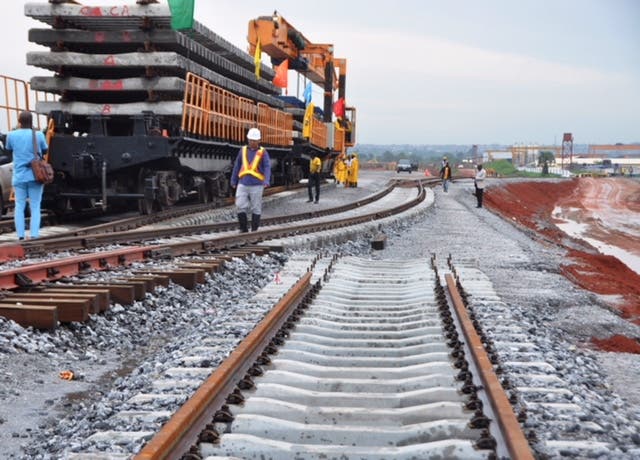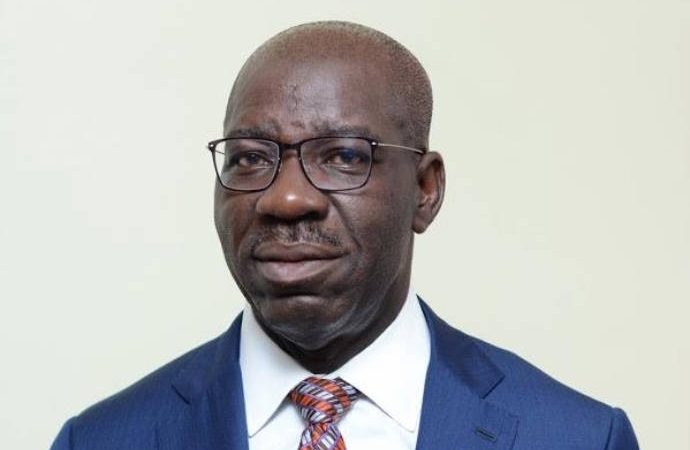Nigeria-Niger Rail Project Threatened
The Nigeria-Niger Republic railway project may be at risk after the rupture of the diplomatic ties between Nigeria and Niger following the July 26 coup in which President Muhammed Bazoum was ousted from office by military officers led by Gen. Abdourahmane Tchiani.
This came as over 1,000 trucks conveying goods worth over N350m to Nigeria other West African nations have remained trapped at the borders for over one week following the closure of the respective gateways to the two neighbouring countries.
The Federal Government and the Nigerien junta had ordered the immediate closure of all land borders between the two countries after the political development in the landlocked country.
In 2021, the Federal Government revealed its plan to construct a 284km rail line to the Niger Republic.
According to the former minister of transport, Rotimi Amaechi, the project will cost the country about $2bn and would be funded by Nigeria through loans from external sources.
Earlier in March, the Muhammadu Buhari administration agreed to release an additional N454bn in public funds to continue the construction of the Kano-Niger Railway and other capital projects.
According to the former transportation minister, the N454bn would be used to purchase rolling stock, operation and maintenance equipment for the Kano-Maradi standard gauge rail line, which is currently under construction.
The sum also includes N510.93m for the purchase of four customised fire service/search and rescue vans for seaports in Port Harcourt, Lagos Port Complex, Tin Can Island port, and the Nigerian Ports Authority’s Marina headquarters.
The 248-kilometre rail line will connect Kano to other cities such as Kazaure in Bauchi State, Daura and Mashi in Katsina state, Dutse in Jigawa state, and the border town of Jibia before terminating in Maradi, Niger Republic’s trade and agricultural hub.
The line has 15 stations along its route and is expected to carry 9,364 passengers and 3000 metric tonnes of cargo per day.
The contract was awarded to MSSRS Mota-Engil Nigeria Limited for $984,722,302, which was inclusive of seven and a half per cent VAT with a completion period of four years.
However, the project met with opposition, particularly from lawmakers.
The proposed rail project was criticised by the National Assembly joint committee on land and marine transport in November 2021.
In June 2021, Buhari defended his government’s initiative to build a railway to connect Nigeria and Niger Republic during an exclusive interview on Arise TV.
He said, “I have first cousins in Niger. There are Kanuris, there are Hausas and there are Fulanis in Niger Republic, just as there are Yorubas in Benin Republic.
“You can’t absolutely cut them off. But the rail, look at the plan. If you read the plan, how we are rehabilitating that rail. Niger, they discovered oil too as you know and we don’t want to allow them to go through Benin Republic. We want them to come through Nigeria.
“We hope they will decide when we take the rail up to Maradi. Then they will send all their exports and so on through Nigeria rather than through Benin.”
Recently, Mota-Engil Nigeria Limited stated the 400km railway line would be completed by 2025.
Speaking to journalists while taking delivery of the over $200m heavy-duty equipment to be deployed for the rail project, the company’s Logistics Manager, Mr. Nuno Colaço, disclosed that the construction of the rail project has commenced even as over 300 Nigerians have been employed with a projection to hit 100,000 at the peak of the project.
“We partnered with Shoreline in 2018 to start investing in the country. We have been awarded the Kano-Maradi railway project, which is an investment of $2bn and 400 kilometres coming from Dutse all the way to Maradi in Niger Republic. We had to buy a lot of equipment and we believe in state-of-the-art equipment and brand new equipment,” he said.
However, following the coup, Nigeria cut electricity to the Niger Republic as a result of the sanctions imposed by the Economic Community of West African States.
“This problem will create a lot of economic challenges between the West African countries because when you talk of trade facilitation, some of the goods go to Niger and some to the northern part of Nigeria. So, the ECOWAS commission should please assist us.
‘’The poor women who have the onions in the trucks are the people suffering. We are only begging ECOWAS to assist us. When the border was closed, what I have done so far was to visit two important borders. Today, those who are suffering are petty traders, not those in power. Those who are in power do not have a problem.” he explained.
“The poor are suffering because of the coup, we have agreed they have seized the accounts that they are using. They can’t do any financial transactions between the 15 countries and they have also banned export and import within these countries which is not good,” he maintained.
As the prospect of military intervention increases following the expiration of the seven-day ultimatum issued by ECOWAS to the military junta, the Algerian President Abdelmadjid Tebboune has rejected external military intervention in the troubled nation.
“A military intervention could ignite the whole Sahel region and Algeria will not use force with its neighbors,” Tabboune said in an interview with local media on Saturday.
The Algerian leader insisted that no solution was possible without the involvement of his country which he said was concerned by the political situation in Niger
“No solution is possible in Niger without the participation of Algeria, as it is concerned by what is happening in this neighbouring country. Algeria is willing to help the Nigeriens restore constitutional legitimacy,’’ he assured.




